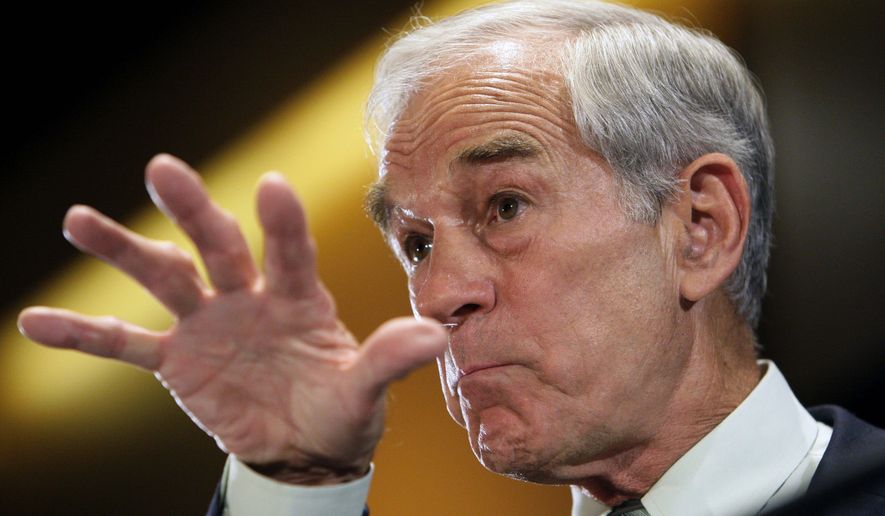Ron Paul may not be in Congress any more, but his “Audit the Fed” bill lives on after him.
House Republican leaders scheduled a vote on the legislation for sometime this week, as one of a series of pre-election bills designed to highlight lawmakers’ stances just before they go home to face voters.
Mr. Paul made the bill one of his causes, and after years of trying finally pushed it through the House in 2012 on an overwhelming 327-98 vote. But Senate Majority Leader Harry Reid, who had previously said he supported an audit of the Federal Reserve, reversed himself.
“If Harry Reid refuses to hold the vote before the Senate leaves town, you can help us make sure the American people hear about it all the way until Election Day and build so much pressure by the time Congress returns, the Senate will be forced to act in the Lame Duck,” Mr. Paul said in an email to supporters from his advocacy group, Campaign for Liberty.
Mr. Paul retired from the House after the last Congress. The current House version of the legislation is sponsored by Rep. Paul Broun, a Georgia Republican. His version cleared the House oversight committee on a voice vote in July, suggesting continued bipartisan support.
The bill would order the Government Accountability Office, which is Congress’s chief investigative arm, to review the Fed’s decision-making — particularly on monetary policy.
Congress established the Federal Reserve nearly a century ago. The system, which consists of a board of governors and 12 regional banks, act as lenders of last resort to the country’s banking system, and it is charged both with fighting inflation and with promoting economic growth and employment.
The Congressional Budget Office said the bill would cost about $5 million for the staff required to conduct the audit. The CBO also said the Federal Reserve would spend money complying with the review, which would end up costing the government about $3 million in lower revenue from the Fed over the next decade.
The previous chairman of the Federal Reserve, Ben Bernanke, had opposed an audit, saying it could lead to politicians second-guessing the secretive board’s decisions. When Mr. Paul’s bill came up for a vote in 2012, Mr. Bernanke called it a “nightmare scenario.”
Mr. Paul’s son, Sen. Rand Paul, Kentucky Republican, has a companion bill in the Senate, but that has not seen any action with Democrats controlling the chamber.
Despite Democratic leaders’ opposition, a number of rank-and-file Democrats support the legislation.
Indeed, 19 Democrats in the House are co-sponsors of Mr. Broun’s bill, while in the Senate, Sen. Mark Begich, Alaska Democrat, is a co-sponsor. Mr. Begich even bragged about his support for the legislation in a recent Senate campaign debate.
• Stephen Dinan can be reached at sdinan@washingtontimes.com.




Please read our comment policy before commenting.